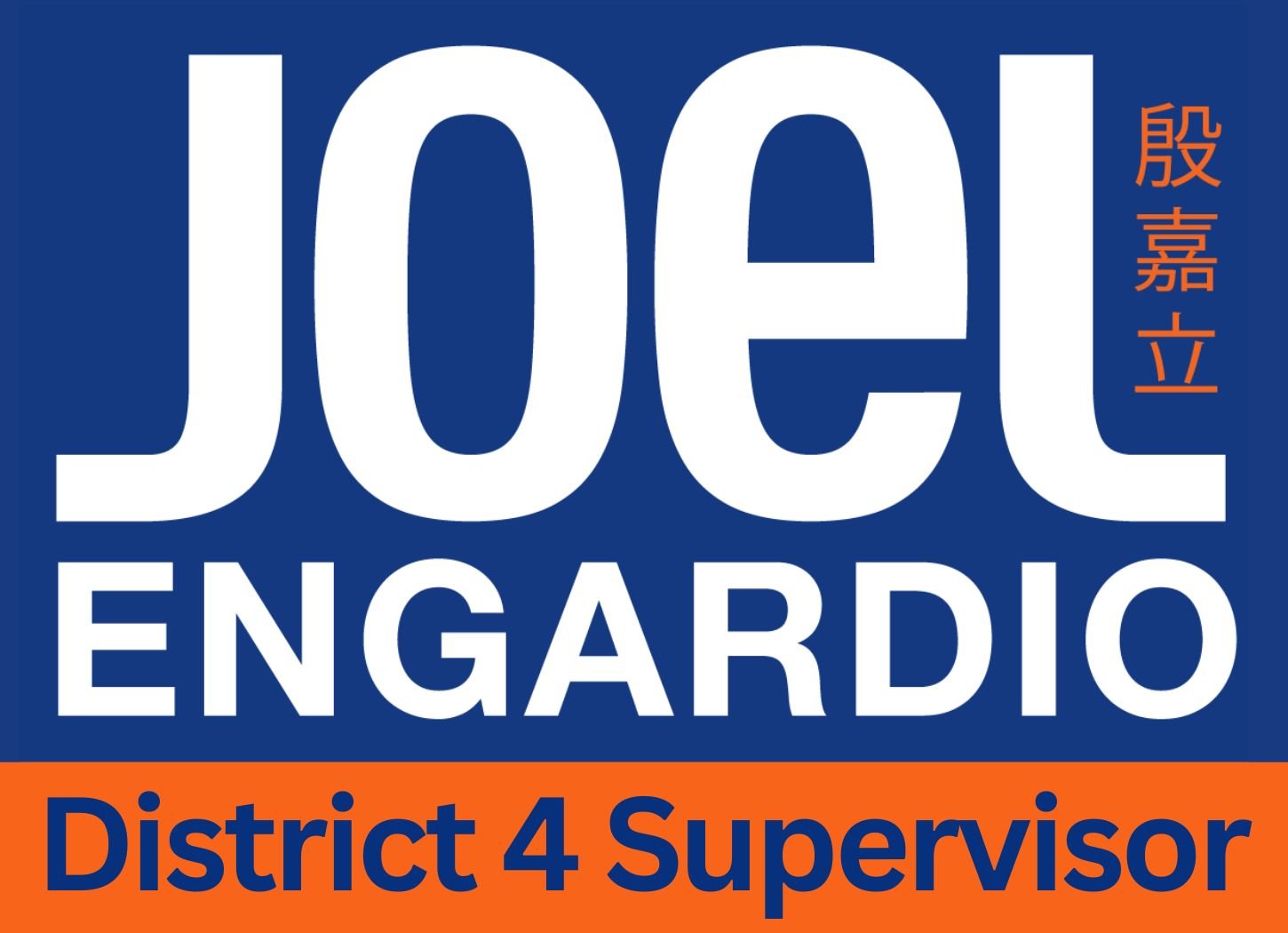Self-Survival in San Francisco
Mohammed Khalil outside his family's Mission district convenience store.
By Joel P. Engardio
The growing list of demographics facing extinction in San Francisco includes families with children, middle-income workers and small business owners.
Mohammed Khalil is all of the above.
“Trying to stay here is a bitch sometimes,” said Khalil, who is doing whatever it takes for his young family to survive San Francisco’s housing shortage and affordability crisis.
He works two jobs to pay rent on a small Visitacion Valley house where his wife and three kids squeeze into two bedrooms and one bathroom. After working nine hours as a claims adjuster for an insurance company, Khalil puts in five hours running the cash register at his family’s convenience store. That’s his weekday schedule. Then he does 10 more hours at the grocery on Saturdays.
Yet Khalil, 37, manages to greet every customer with a smile. He still believes in the message printed on the awning of his Mission district store: “Family Owned and Operated in the Greatest City on Earth!”
Khalil refuses to give up on San Francisco. He could find cheaper housing elsewhere, but fears those places won’t be as hospitable to his family’s core identity.
“Muslims love San Francisco because this city accepts us,” said Khalil, who was born here after his parents emigrated from Jerusalem. “My wife feels comfortable wearing her veil here. She doesn’t in Sacramento. And she would never set foot in Texas. San Francisco lets my wife be who she is.”
While San Francisco welcomes Khalil for being Muslim, he faces being pushed out for being middle class. It will be years before city plans are realized to build more middle-income targeted housing. Khalil can’t wait that long.
He also can’t wait for the political battles to be resolved over where housing can be built and how high it can go.
“As a native San Franciscan, I’m in favor of building more housing,” Khalil said. “We should build more so prices can go down. And we should build it at every BART station. Forget 10 stores, build 20 — as long as I can live there, I’m OK with it.”
Khalil’s rental situation isn’t secure because rent control doesn’t apply to single-family homes. His widowed mother doesn’t have space in her house. Six other family members already live there and five more won’t fit.
Out of options, Khalil must save himself. Staying in San Francisco means buying the cheapest market-rate house he can find. But that requires making more money. To get a better-paying job, he went back to school at night to earn a degree in business management.
“Working in the store 80 hours a week only gets you so far,” said Khalil, who graduated in May from Golden Gate University — a non-profit school in San Francisco that has specialized in adult learning for more than a century. “GGU helped me get a corporate job. I wouldn’t have the same opportunity to afford a house in San Francisco without this degree.”
As the student commencement speaker, Khalil told his classmates he was inspired by their ability to overcome the fear of change and failure.
“Everyone in my class was a working adult, parent or veteran going through the same struggles to better their lives,” Khalil said. “It was good motivation. I wasn’t sitting next to teenagers.”
Yet graduation didn’t end the long hours at his family’s store, where Khalil studied between customers. Working nights and weekends in addition to his full-time job is necessary when the average house in San Francisco costs $1.2 million. It’s the quickest way to earn a big enough down payment.
Khalil’s wife wants him to quit the store for good — and not just because the hours keep him away from his sons who are ages two, four and seven.
“As Muslims, we aren’t supposed to sell alcohol,” Khalil said. “But without alcohol, there is no store. I’ll let God judge me. If selling alcohol is my worst offense, I’m OK with that because I never drank it myself. And I sell top shelf stuff.”
Khalil said he is more liberal than his wife because the store introduces him to many diverse customers, especially LGBT people. Pride week is the store’s busiest. Thousands of celebrants at the annual Dyke March pass by the store on the corner of 18th and Guerrero Streets.
“Gay Pride is the happiest day of my year. I love the energy. But my wife is not there yet. It’s still hard for her to accept these things, even when San Francisco is so accepting of her,” Khalil said. “The Koran is beautiful but we have to read it with modern times in mind. I don’t care if we have a son who wants to be a drag queen. All he needs to be is a good person.”
The essence and promise of San Francisco is diminished when we lose families like Khalil’s. But middle-income extinction is not inevitable if we address our housing shortage in a meaningful way — with the can-do spirit Khalil embraces.
“I’m blessed,” he said. “People are getting bombed in Syria and people can’t drink the water in Flint, Michigan. I don’t have anything to complain about. If I want to stay in San Francisco, I just need to work harder.”

